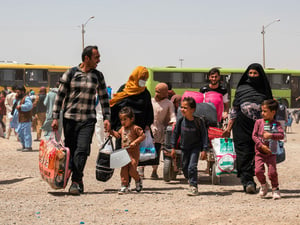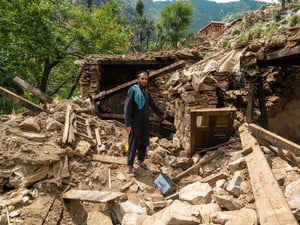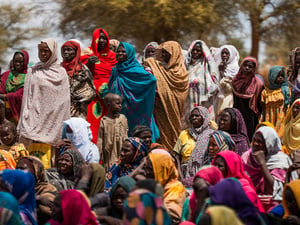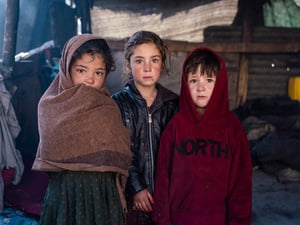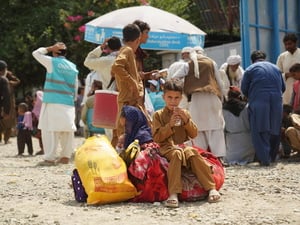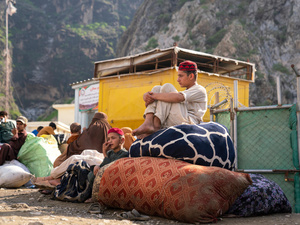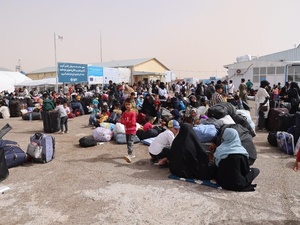Afghanistan: new technology to help deter "recycling"
Afghanistan: new technology to help deter "recycling"
Starting this week, UNHCR staff in Peshawar, Pakistan, have started testing iris-recognition technology as an additional measure to help prevent the "recycling" of individuals seeking the multiple disbursement of UNHCR's return assistance package.
Every individual returning to Afghanistan under the joint UNHCR/Afghan government-facilitated initiative receives between $5 and $30 in transport assistance depending upon the distance they will travel to reach their home areas. They also get a UNHCR family kit containing a plastic tarpaulin, soap and hygienic items, along with WFP wheat flour.
Since UNHCR and the Afghan government began helping refugees homewards in March, we have used various verification measures to curb "recycling" and fraudulent applications. In addition to the more than 1.5 million people who have repatriated from Pakistan over the last seven months, more than 396,000 others have been turned away after we determined that their interest in repatriation was not genuine and that they were merely seeking the aid package distributed inside Afghanistan.
The revolutionary iris-recognition technology being tested in Peshawar will augment our ongoing verification efforts that have saved UNHCR more than $8 million in travel assistance, plus the cost of more than 72,000 family kits. Thousands of tons of WFP food aid have also been saved for more needy beneficiaries.
Yesterday, on the first day of the test in Peshawar, we scanned more than 1,500 Afghans over 16 years old, out of the more than 3,800 people who came forward to register for repatriation assistance at Takhtabaig. Under the system, individuals will undergo iris recognition before proceeding to the other verification and registration steps. The iris check is a simple procedure in which an iris image is captured and stored using standard camera and illumination technologies under near-visible infrared light. Matching the iris image against the database takes a second or less.
The technology being tested in Peshawar will enhance UNHCR's ability to identify genuine refugees entitled to the one-time return assistance package. As with the other verification efforts we have used since March, applicants who have previously been processed will be detected using the iris-recognition system and asked to leave the Takhtabaig voluntary repatriation centre.
More than 1.7 million Afghans have returned home under the programme that got underway in March. In addition to the more than 1.5 million returnees from Pakistan, another 278,000 have repatriated from Iran, including 212,000 under the joint programme and 66,000 spontaneous returnees, while the remainder have gone home from the Central Asian states.

